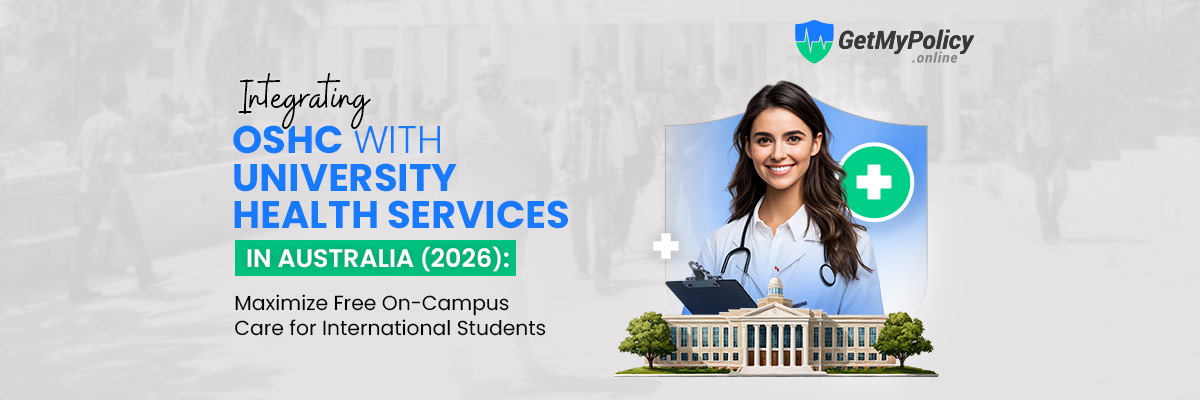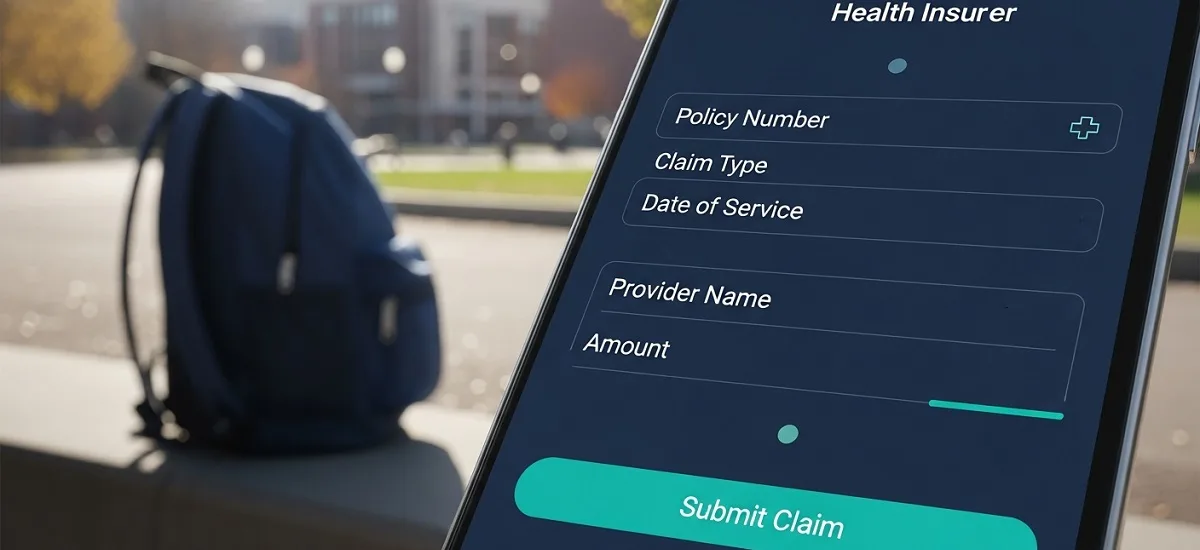


Studying in Australia is a life-changing experience-but navigating healthcare as an international student can feel confusing at first. Between OSHC (Overseas Student Health Cover), on-campus university medical services, and external hospital and GP networks, many students don’t realize how much free or subsidized care they can access simply by combining these two systems the right way.
This blog explains how to integrate OSHC with University Health Services to get maximum value, avoid unnecessary out-of-pocket fees, speed up claims, and ensure support during emergencies or critical treatment. It also clarifies what’s covered, what’s not covered, and how different OSHC providers support students based on the latest policy rules shared on their website.
Most universities in Australia provide on-campus health centres, including doctors, nurses, mental-health support, vaccinations, sexual-health services, physiotherapy, dieticians, and wellbeing programs. When combined with OSHC, students can save hundreds of dollars and receive priority care without long waiting times.
Under OSHC policies from insurers such as Bupa, nib, Medibank, and others, approved medical services are eligible for reimbursement when treated by recognised providers. Many university clinics fall under this recognition pathway, making them the most cost-efficient access point for treatment.
OSHC providers pay benefits for medical services listed under the Medicare Benefits Schedule (MBS), which includes consultations with registered doctors and specialists. The policy rules clearly state that benefits apply to medical services and hospital treatment provided by recognised doctors and hospitals (under Benefits & Hospital Treatment provisions of nib). OSHC can therefore apply when visiting university medical centres if the practitioner is recognised and the service is eligible.
What Treatments Can Be Accessed Through OSHC + University Clinics
University health centres commonly provide:
According to the OSHC deed (Schedule 1 Base Coverage) insurers must cover MBS-listed in-hospital and out-of-hospital medical expenses for international students, which means basic GP treatment is generally claimable through OSHC.
Many universities even offer bulk-billing arrangements, which means:
➡️ No upfront MBS cost payment - billed directly to insurer – only pay gap fees.
Knowing Your Card and Claiming Methods
Most insurers enable:
These processes are consistent with provisions in the OSHC policy rules relating to claims processing and claim submission requirements.
To ensure smooth access:

Different policies clearly outline that hospital treatment is covered for medically necessary conditions under OSHC.
University clinics are recommended for:
OSHC applies more heavily in hospitals for:
This integrated pathway helps students avoid unnecessary emergency visits and out-of-pocket costs.
The OSHC providers available on GetMyPolicy include:
⭐ nib OSHC
⭐ ahm OSHC
Many universities partner directly with some of the above insurers, which can allow faster direct billing arrangements, shorter claim cycles, and access to student support programs.
1. Register at your university medical centre immediately
New international students often wait - resulting in delays booking appointments during exam periods.
2. Learn what is fully covered vs. partially covered
Understanding waiting periods & exclusions protects budgets. (Different policies outline waiting periods for services such as pregnancy, and pre-existing condition benefits.)
3. Use university referrals for specialists
Referral pathways support full OSHC reimbursement where eligible.
4. Use insurer apps for digital claims
Many insurers now offer AI-assisted claims processing reducing approval times.
5. Access mental health and wellness services early
Most universities provide free counselling sessions beyond OSHC limits.
Q1. Do university clinics accept OSHC directly?
Yes, most Australian universities accept direct billing with major OSHC insurers like Bupa, Medibank, nib, ahm, and Allianz Care. This means students often don’t need to pay upfront, depending on the service and clinic policy. Always confirm billing arrangements before an appointment.
Q2. What medical services can I access for free on campus?
Many universities offer free or low-cost GP consultations, mental-health counselling, vaccinations, prescriptions, and physiotherapy support. OSHC covers MBS-listed medical services when provided by registered practitioners, allowing students to reduce expenses significantly.
Q3. Can OSHC cover emergency or hospital visits?
Yes, OSHC includes hospital treatment and emergency services according to policy rules and OSHC deed requirements. Students should always visit university clinics first for non-emergency medical needs to avoid unnecessary hospital charges.
Q4. How do I claim OSHC benefits at a university medical centre?
If direct billing is available, claims are processed automatically. Otherwise, students can claim through insurer mobile apps using receipts and itemised invoices.

Integrating university medical services with OSHC access gives international students faster care, lower expenses, easier claims, and a stronger support system throughout their study journey in Australia. Having the right OSHC policy ensures peace of mind, and using university-based services ensures smarter, cost-effective health management without complexity.
Whether you are choosing OSHC for the first time or optimizing your existing coverage, checking multiple options helps you find a policy that aligns with your study location and health needs.
➡️ Explore OSHC options from Bupa, nib, Medibank, Allianz Care, ahm Health Insurance.
➡ Compare available plans and choose what fits your medical requirements and budget on getmypolicy.online

.svg)
.svg)
.svg)


